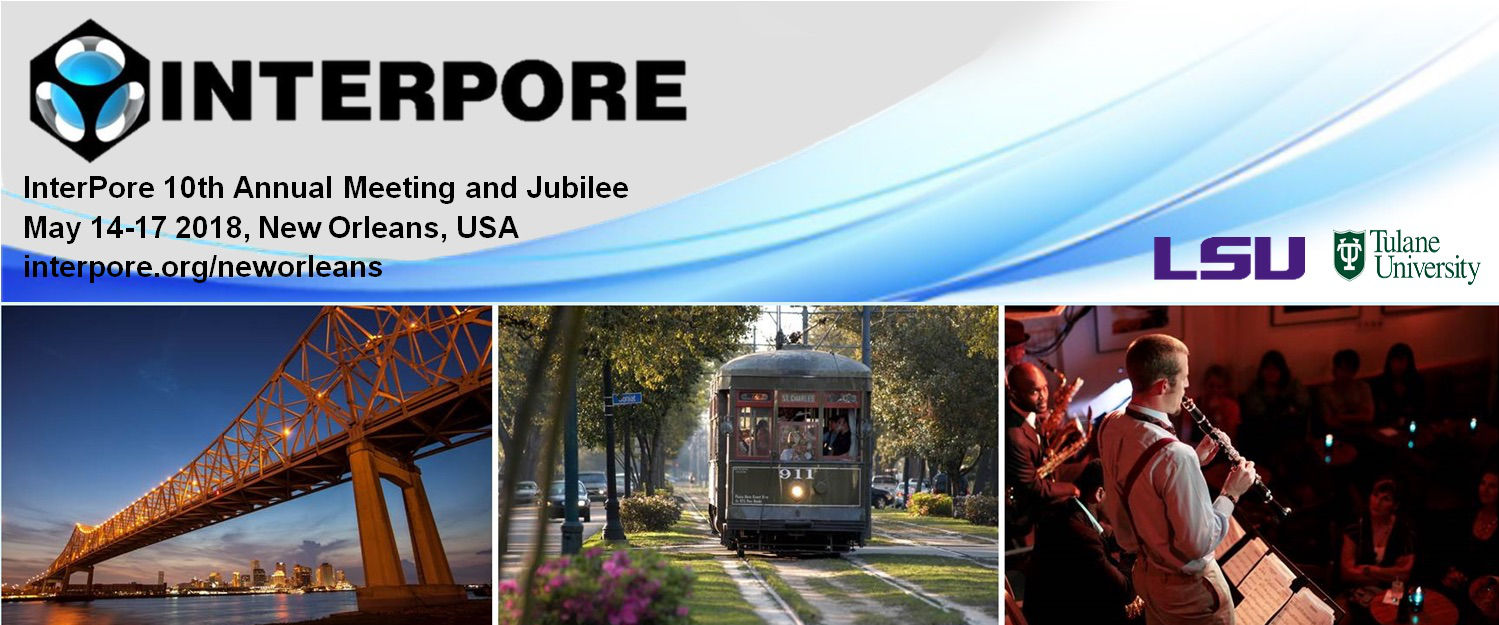Speaker
Description
We present a numerical analysis of fluid phase distributions and relative permeabilities obtained from direct pore-scale simulations of two-phase flow through a real pore space with diverse conditions of wettability. Exploring the effects of wettability on the fluid behaviors within porous media is of fundamental relevance for a variety of engineering as well as environmental applications, including, e.g., conventional and unconventional hydrocarbon extraction, along with CO2 storage in subsurface systems. The pore space investigated is a three-dimensional limestone rock reconstructed via X-ray micro-tomography at 2 microns voxel size resolution. The one millimeter-scale rock sample is associated to a connected porosity Phi = 0.128 and an absolute permeability k = 357 mD. We employ a simulation procedure mimicking steady-state protocols implemented to estimate multiphase relative permeability by laboratory-scale experiments. We first simulate a primary-drainage (oil injection) process until steady-state conditions are reached. Then, we simulate a series of secondary-imbibition (water injection) processes by injecting diverse amount of water/oil volumes until steady-state conditions are achieved. The ratios between oil and water densities and viscosities are set equal to 0.78 and 2.87, respectively. In all our simulations the capillary number is constant and equal to 1e-5. Flow field and fluid phase distributions are calculated within the explicit three-dimensional pore space using a finite volume-based solver and implementing the so-called Volume-Of-Fluid technique. Capillary end effects that may arise at the inlet and outlet boundaries are removed by implementing ad-hoc periodic conditions (see ref [1]). In this context, adjustment of fluid-phase saturations is achieved through local injection of one of the two fluids. The total fluid flow rate is indirectly set through a pressure jump across the periodic inlet and outlet boundaries. Simulations were achieved using HPC resources at CINECA computing center [2], within the LISA-Prod Project HPL13P71U0.
In order to assess the impact of wettability conditions on the resulting two-phase relative permeability curves, multiphase flow simulations are performed by using diverse contact angle values at the solid-fluid boundaries resulting in water-, neutral- and oil-wet conditions. The numerical errors associated with both geometry and pore space discretization are analyzed by performing a sensitivity analysis reconstructing the pore-space with diverse spatial resolution scales. We observe that errors in the geometrical representation have an impact on the averaged capillary pressure as well as on residual fluid saturations, while errors originating from the pore-space discretization impact water and oil relative permeabilities. Our results document that varying the contact angle has a strong influence on residual oil and water saturations, relative permeability curves and spatial distribution of fluid phases observed at the end of the primary-drainage and secondary-imbibition processes.
References
[1] G. R. Guédon, J. D. Hyman, F. Inzoli, M. Riva, A. Guadagnini. Influence of capillary end effects on steady-state relative permeability estimates from direct pore-scale simulations. Physics of Fluids, Accepted Manuscript, 2017.
[2] https://www.cineca.it/en.
| Acceptance of Terms and Conditions | Click here to agree |
|---|


